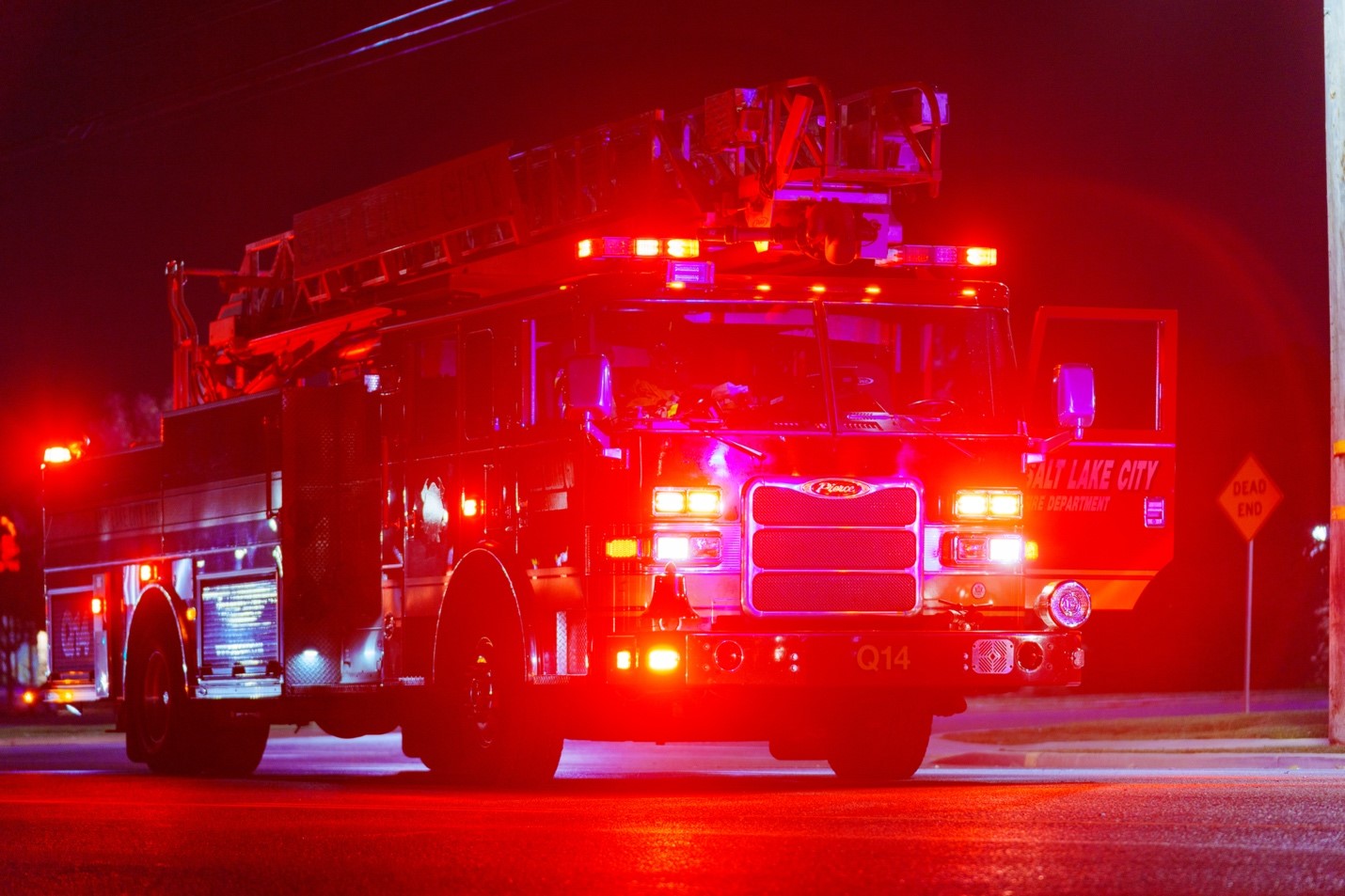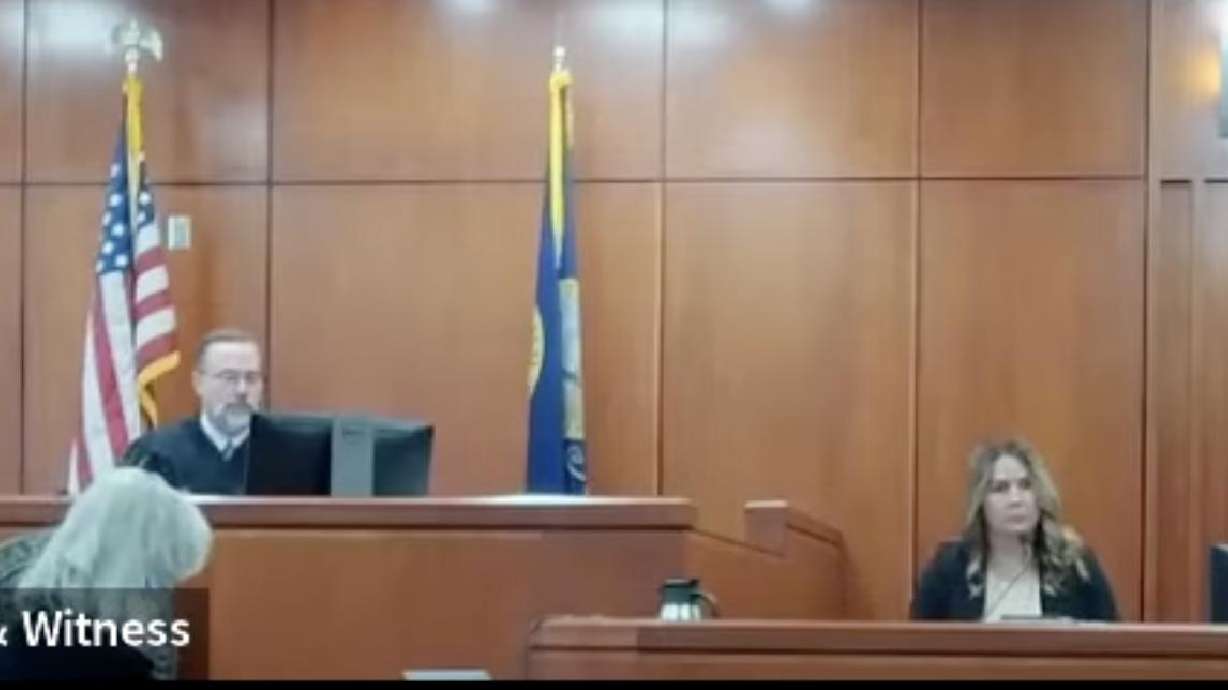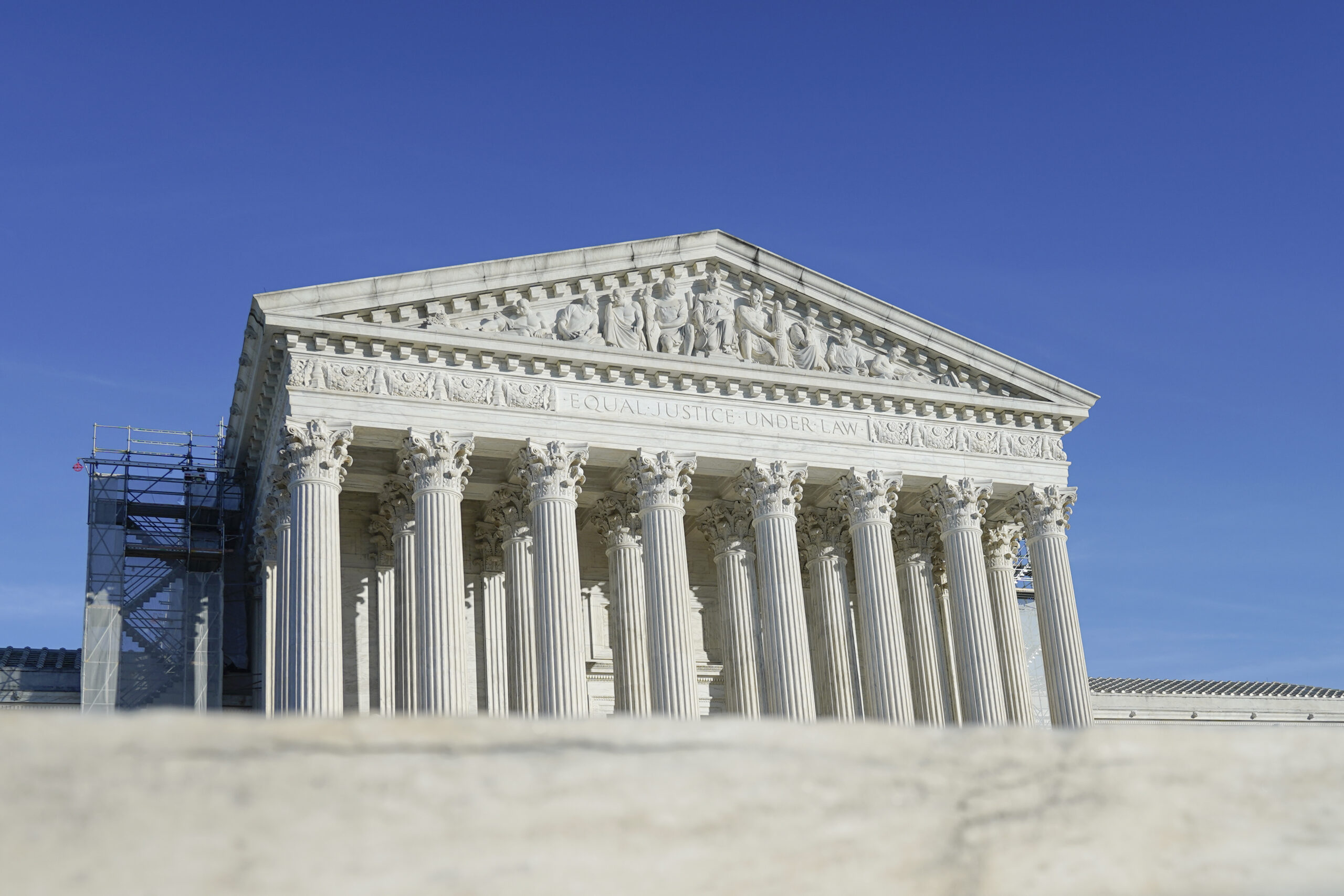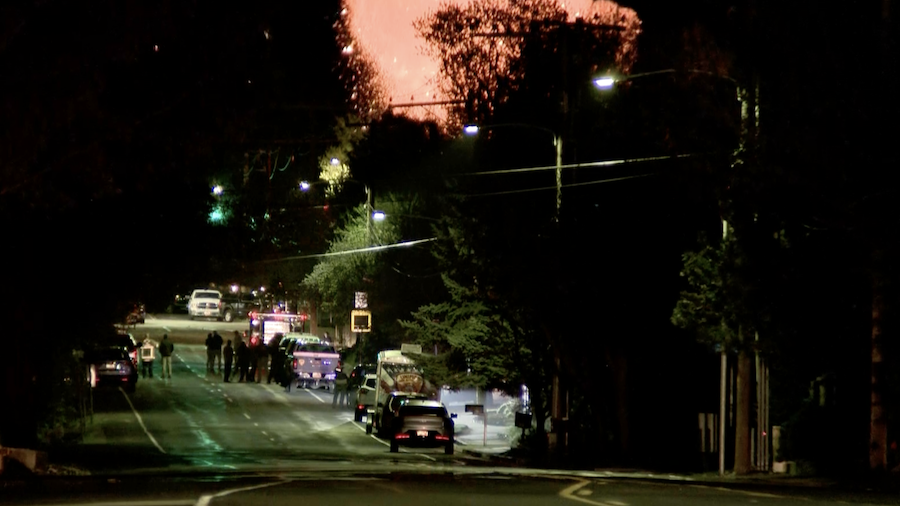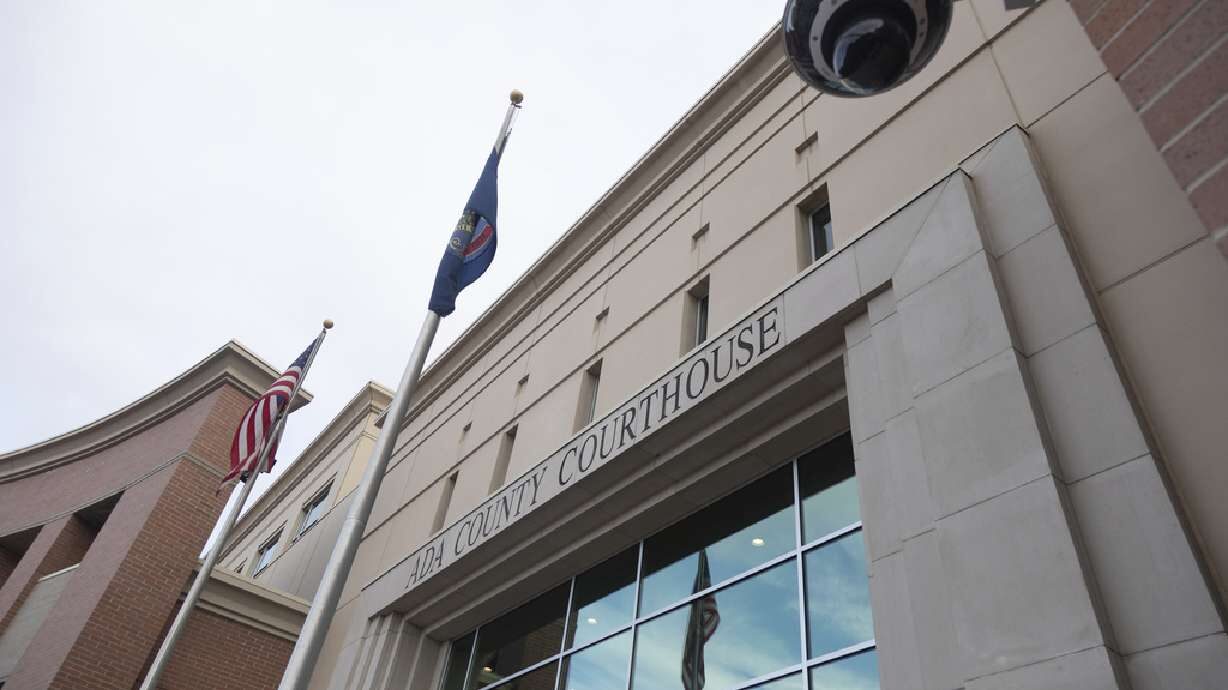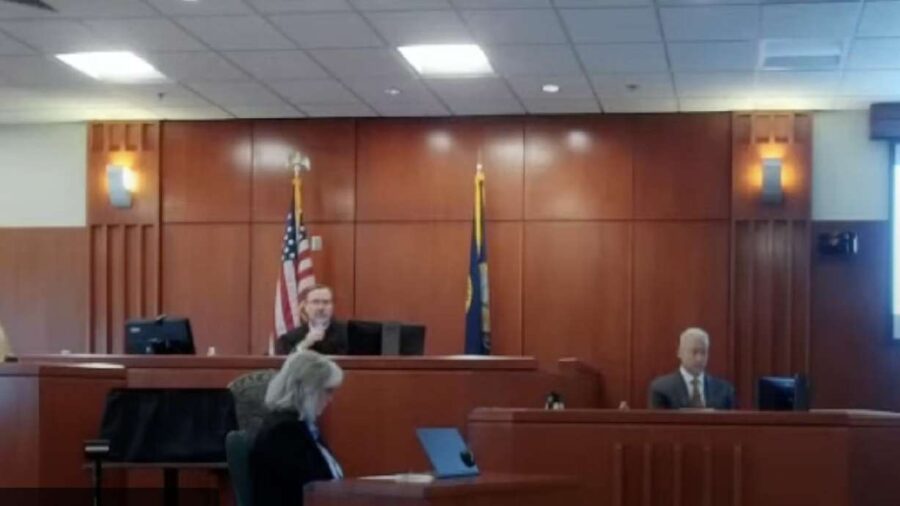Supreme Court widens state power over tribes. What does it mean for Utah?
Jun 30, 2022, 5:00 PM | Updated: Dec 30, 2022, 11:20 am
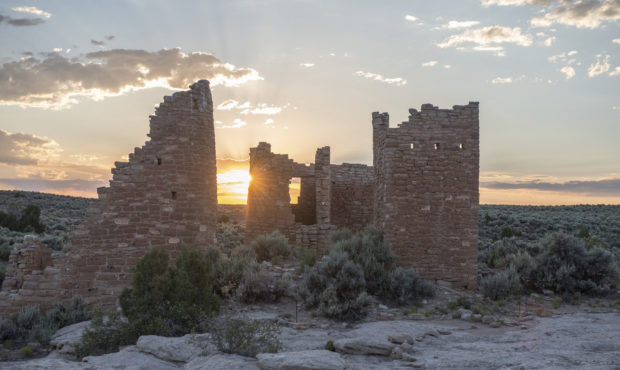
This June 20, 2017, photo provided by Chris Wonderly shows Hovenweep Castle at Hovenweep National Monument on the Colorado-Utah border. The U.S. government will allow oil and gas companies to make lease bids Monday on lands considered archaeologically sensitive near a national monument stretching across the Utah-Colorado border that houses sacred tribal sites. Included in the Bureau of Land Management’s September oil and gas lease sale is about 47 square miles (122 square kilometers) of land north of Hovenweep National Monument, a group of prehistoric villages overlooking a canyon with connections to several indigenous tribes throughout the U.S. Southwest. (Chris Wonderly/National Park Service, via AP)
(Chris Wonderly/National Park Service, via AP)
SALT LAKE CITY — In a 5-t0-4 decision Wednesday, the US Supreme Court ruled that states can prosecute non-tribal suspects who commit crimes in Indian country against Native Americans. Dustin Janson, director of the Utah Division of Indian Affairs, joined KSL at Night host and attorney Greg Skordas to discuss the high court’s ruling and its implication for tribes in Utah.
Before the Supreme Court ruling, states had the authority to exercise jurisdiction over criminal activity that involved a non-Native perpetrator against a non-Native victim.
Supreme Court ruling changes Native law
“What changed with [Wednesday’s] decision is that the Supreme Court says that now the states can exercise jurisdiction over non-Indian perpetrators against Indian victims,” Hanson said.
Skordas pointed out that the defendant in the Supreme Court argued successfully that he should have had the right to prosecution in an Oklahoma state court and not by the federal government.
“The Utah Division of Indian Affairs doesn’t speak for the eight sovereign nations within Utah,” Hanson pointed out. “We’d encourage anyone to go out and speak with those tribal governments to get their take on [the recent Supreme Court ruling].”
Gov. Cox needs to speak about ruling with Utah tribes, says director
“The Cox administration will need to take a careful look at this opinion and have meaningful consultation with the local government, the local tribal governments,” Hanson said.
Skordas asked Hanson about the state of relationships between the Utah tribes and Gov. Spencer Cox and Lt. Gov. Deidre Henderson.
“I think our relationship is going pretty well. I work with leaders of tribal governments. From what I’m told, they’re really grateful for their approach that Governor Cox and Lieutenant Governor Henderson have taken in regards to bettering that relationship,” Hanson said. “Lieutenant Governor Henderson is someone who really wants things to get better. She’s a go-getter. She’s made it a priority to visit tribal communities throughout the state.
“The governor hosts a Native American Summit. This year it’s going to be held at the University of Utah . . . It’s to host tribal nations. It’s to provide the opportunity for more conversations, more consultation between the governor’s office and tribal leaders . . . What I’m really impressed about when it comes to the Cox administration is that they really do understand that healthy Native communities will result in a healthy state of Utah.”
16TH ANNUAL GOVERNOR’S NATIVE AMERICAN SUMMIT JULY 28, 2022
The eight federally recognized tribes in Utah:
- Northwestern Band of Shoshone Nation,
- Confederated Tribes of Goshute,
- Skull Valley Band of Goshute,
- Paiute Indian Tribe of Utah,
- San Juan Southern Paiute Tribe,
- Ute Indian Tribe of the Uintah and Ouray Reservation,
- Ute Mountain Ute Tribe and
- Navajo Nation.
Related news:
Native American tribes will co-manage Bears Ears National Monument with federal agencies
The latest in news and politics with a range of hosts every night. KSL at Night gives a refreshing take on the day’s news with each host bringing their unique perspective and expertise to the conversation.


